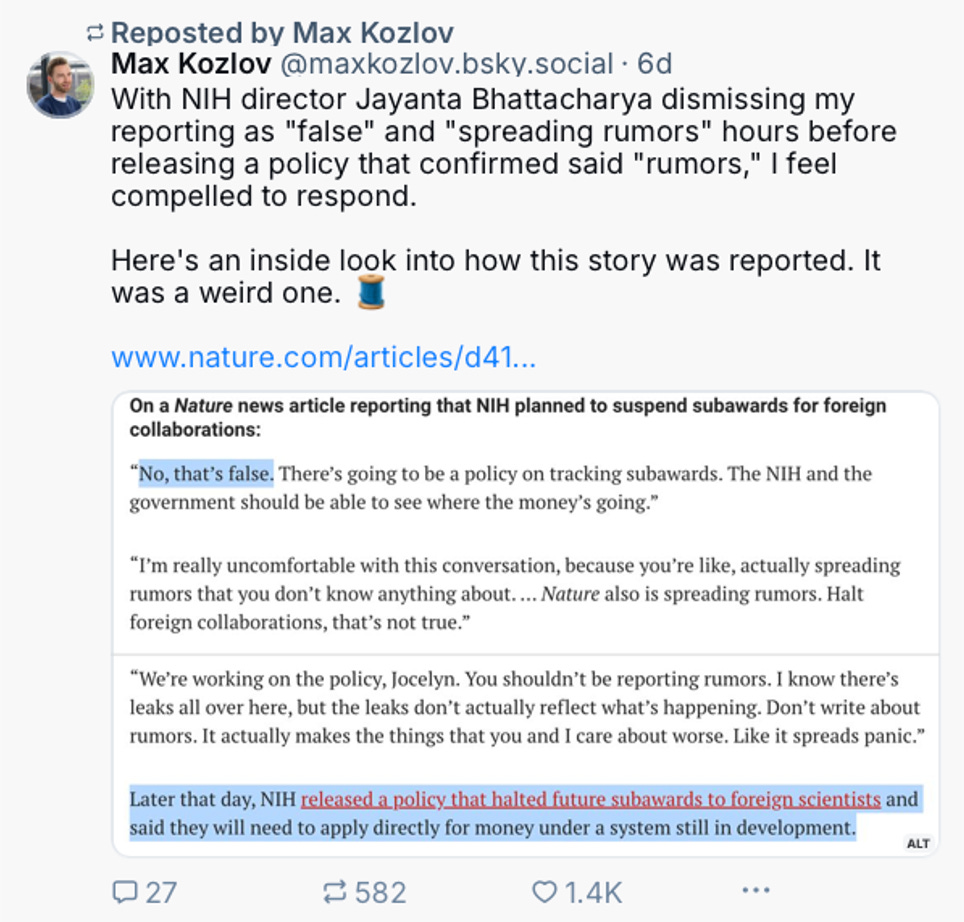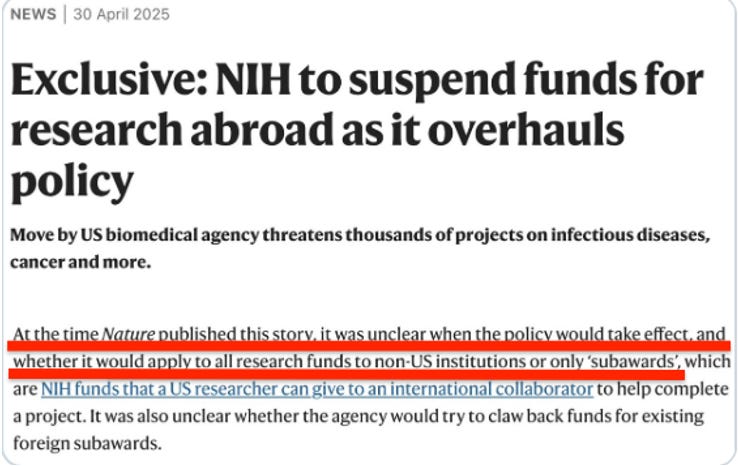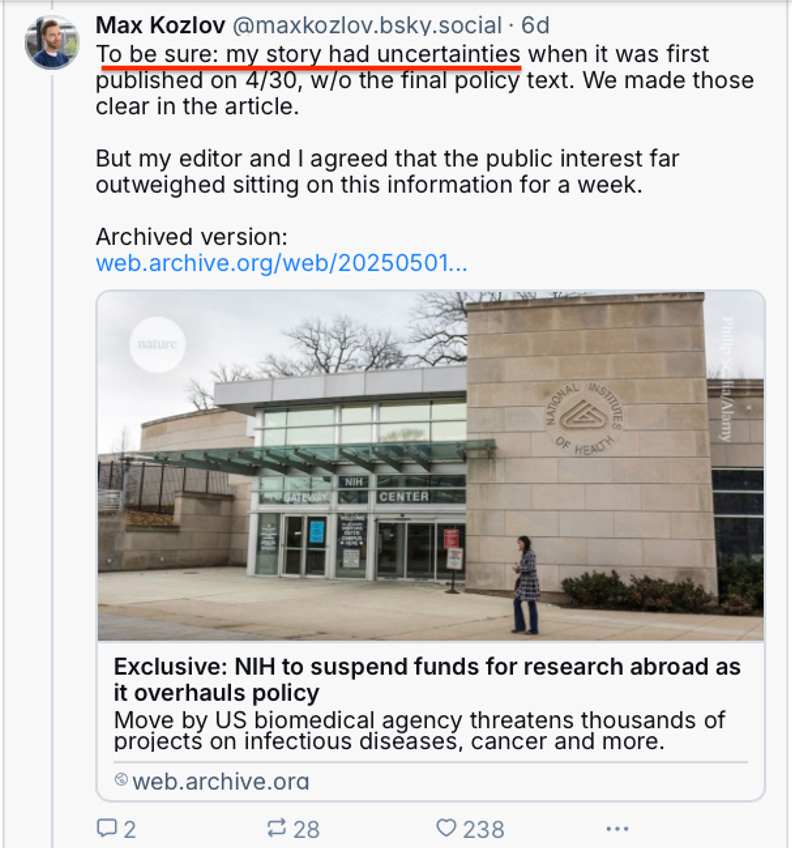I released the recording and transcript of an interview between Science Magazine reporter Jocelyn Kaiser and NIH Director Jay Bhattacharya to point out how science writers with a political agenda misinform you and warp the perception of government activity. When you listen to the interview, you hear Bhattacharya dismissing as “rumors” an article by Nature Magazine’s Max Kozlov which reported chitchat inside the NIH about an upcoming change to NIH grants given to foreign entities.
In fact, the policy change only concerned “subawards” to foreign entities, not ALL foreign grants. Here's the first sentence of that Kozlov Nature article speculating on the new policy:
A forthcoming policy from the US National Institutes of Health (NIH) will target — and at least temporarily stop — funding to laboratories and hospitals outside the United States, threatening thousands of global-health projects and international collaborations on topics such as emerging infectious diseases and cancer.
The Nature Magazine headline contains a similar claim we now know is misleading, alleging that NIH would “suspend funds for research abroad” not just subawards. However, Kozlov admits further down in his reporting that he doesn’t know if this policy change “would apply to all research funds to non-US institutions or only ‘subawards’, which are NIH funds that a US researcher can give to an international collaborator to help complete a project.”
Basically, Kozlov didn’t really know what the policy would say, nor did his anonymous sources. Nonetheless, Kozlov published the story anyways with “Exclusive” in the headline, likely because he wanted to get clicks on Bluesky where liberal academics and their media friends—such as Kozlov—hang out and bitch about the world.
Bhattacharya dismissed Kozlov’s Nature Magazine article as “rumors” in his interview with Science Magazine’s Jocelyn Kaiser, exactly because Kozlov reported that ALL foreign grants might end. Bhattacharya then explained several times to Kaiser that the new policy involved subawards, and he asked Kaiser to wait until the policy became public.
Shortly after the interview, the NIH published their new policy which only covers subawards. “NIH continues to support direct foreign awards,” the policy reads.
Kaiser then accused Bhattacharya of lying to her about Nature’s article, as did Science Magazine’s Jon Cohen, and others on Bluesky.
It's a pretty sad tale which you can read below, along with a transcript and recording of the interview.
Oh, but it gets better.
On Bluesky, Nature Magazine’s Kozlov grabbed a screenshot of Kaiser’s misleading piece in Science Magazine and amplified accusations that Bhattacharya had lied. In Kozlov’s mind, the new NIH policy on subawards only “confirmed” his reporting, even though his own reporting alleged ALL foreign awards might be gone.
Seriously, this is how Kozlov thinks and acts.
Don’t believe me that Kozlov’s reporting relied on rumors? Here’s Kozlov’s headline which claims NIH would shut down foreign awards or “research abroad” and a paragraph from his own article clarifying that “it was unclear” what the new policy would cover.
“At the time Nature published this story, it was unclear when the policy would take effect, and whether it would apply to all research funds to non-US institution or only ‘subawards….’”
Of course, there’s nothing wrong with Kozlov not knowing exactly what a new policy would cover, nor is it problem for Kozlov to report on rumors inside an agency. Journalists report on rumors all the time. And Kozlov detailed honestly in his own reporting that “it was unclear” what the policy would actually say.
Ironically, Kozlov admits this in his social media grievance, after falsely complaining that Bhattacharya had lied about his reporting.
Because after denigrating Bhattacharya for noting that his reporting was based on “rumors” Kozlov then admits his reporting was based on “uncertainties.”
I have no clue what the difference is between a rumor and an uncertainty. If you do, please leave a comment below.
I hope this helps you better understand how science writers mislead their readers, while preparing you as a reader to confront press accounts more critically. As always, be skeptical of what you read.
And please, read widely and read wisely.
Paul D. Thacker, Investigative Reporter; Former Investigator United States Senate; Former Fellow Safra Ethics Center, Harvard University
https://disinformationchronicle.substack.com/p/nature-magazine-scicomm-writer-max





No comments:
Post a Comment
Note: Only a member of this blog may post a comment.